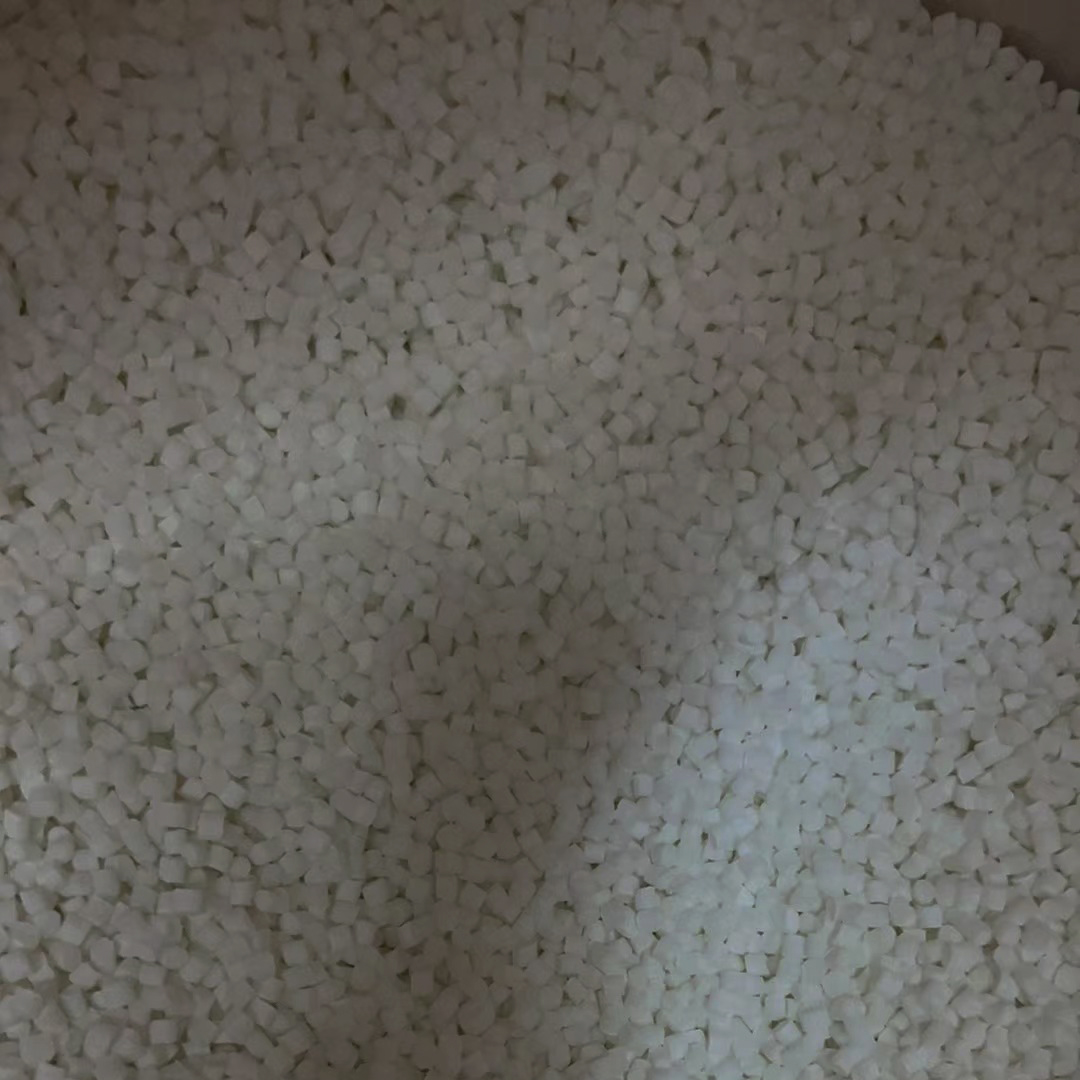
- +8615880211820
- [email protected]
- No.67, Tongan Industry Park, Xiamen
In the ever-evolving world of film production, quality is a defining factor. The film industry, especially in flexible packaging and industrial applications, faces various challenges, and one prominent issue is blocking. Our factory is at the forefront of addressing this concern with a diverse range of custom antiblock masterbatch plastic granules. These masterbatches are meticulously designed to meet precise performance criteria, making them a game-changer in the film industry.
Blocking primarily occurs when two pieces of film come into contact, leading to adhesion and difficulties during film handling. This issue is often encountered when films are pressed together on a take-up roll or after stacking finished converted films. To counteract this problem, our factory’s antiblock additives prove to be indispensable.
Addressing Two Key Film Challenges:
During the rolling of film, air bubbles can become trapped between successive layers, leading to small localized flaws, often referred to as “dots.” Over time, these dots can accumulate and result in non-cylindrical film coils, and when unrolled, the film is no longer perfectly flat.
The blocking effect occurs when two smooth layers of film adhere to each other. This phenomenon is most common in polyethylene and polypropylene films, regardless of whether they are produced through a “CAST” or “inflation” (BLOWN) process, and even after lamination.
To overcome these challenges, films need to possess a degree of roughness, which can be achieved by incorporating specific fillers, whether they are organic or mineral in nature. Polytechs, a pioneer in the field, offers masterbatches based on a range of high-quality fillers.
Polytechs offers a selection of masterbatches designed to address the problems of rolling film coils and preventing blocking. These masterbatches contain fillers that introduce the necessary roughness to the film surface. Some of the notable offerings include:
Natural Silica: Derived from diatomic earth, these fillers are incorporated within a polyethylene matrix and are available in various concentrations, such as ABPE15N, ABPE30N, and ABPE50N.
Talc: Polytechs’ talc-based masterbatches, like ABPETA30SC, add the essential roughness to the film surface, effectively preventing the blocking effect.
Synthetic Silicas: The company offers masterbatches such as ABPE20S (Polyethylene base) and ABPP10S (Polypropylene base) containing synthetic silicas to address blocking issues in different film types.
Moreover, upon request, our factory can provide other types of fillers, ranging from calcium carbonate to microbeads or microspheres of glass, microbeads of PMMA, or cross-linked silicone. This flexibility ensures that Polytechs can cater to various thermoplastic matrices and specific requirements.
Antiblocking agents play a pivotal role in enhancing film quality. They are solid particles classified based on their source (natural or synthetic), type (organic or inorganic), and form and size (irregular or spherical shape). The selection of an antiblocking masterbatch type depends on the desired film properties, applications, and the specific polymer used. These agents can significantly impact:
In conclusion, the custom antiblock masterbatch plastic granules offered by our factory are a groundbreaking solution to the challenges encountered in the film industry. Whether you’re manufacturing films for flexible packaging, industrial applications, or other purposes, our masterbatches are tailored to address blocking and enhance film properties. By preventing blocking and improving optical and slip properties, they contribute to smoother and more efficient film production, ultimately resulting in a superior end product. Trust Polytechs to provide custom solutions that meet your unique film production needs, ensuring excellence in every roll of film.
Our masterbatches find a multitude of applications across diverse industries. Whether in plastics, textiles, or various manufacturing processes, our masterbatches play a pivotal role in enhancing product quality and performance. With customizable formulations, they offer color consistency, UV protection, flame resistance, and more, making them the go-to solution for countless applications. From automotive parts to packaging materials, our masterbatches are the trusted choice for achieving superior results across a wide spectrum of industries.
Our custom masterbatches are designed to match specific polymers, ensuring optimal performance when incorporated into your selected material. We have the capability to produce masterbatches suitable for a variety of polymers mentioned below, and many more. If you’re working with a material that isn’t listed here, please don’t hesitate to reach out to our knowledgeable technical team to explore the possibility of meeting your specific needs.
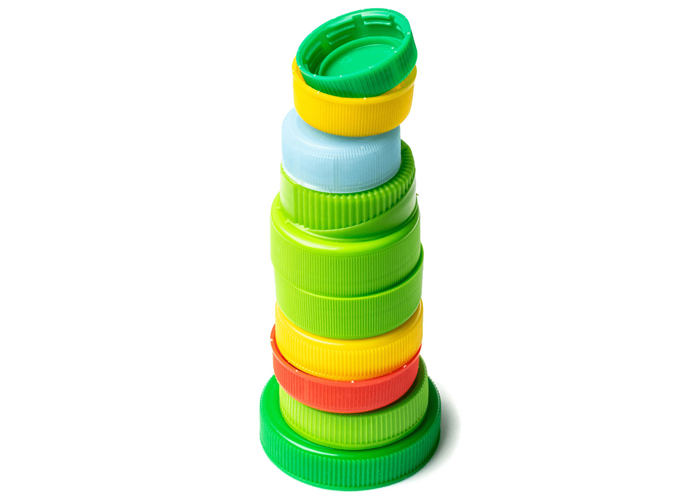
Low Density Polyethylene – Somewhat more translucent than HDPE and considerably more pliable, primarily employed in flexible packaging, tote bags, pliable tubing, film applications, and similar uses. Like HDPE, it has limited transparency characteristics. It exhibits outstanding chemical resistance to alcohols, acids, and alkalis but has restricted resistance to hydrocarbon solvents and mineral oils. Prolonged exposure to UV radiation can initiate degradation.
High-Density Polyethylene – Featuring a somewhat milky-white appearance, this material finds wide application in rigid bottle packaging, injection-molded caps and closures, crates, and more. Its natural opacity can limit the degree of transparency attainable. HDPE exhibits superior chemical and solvent resistance when compared to LDPE.

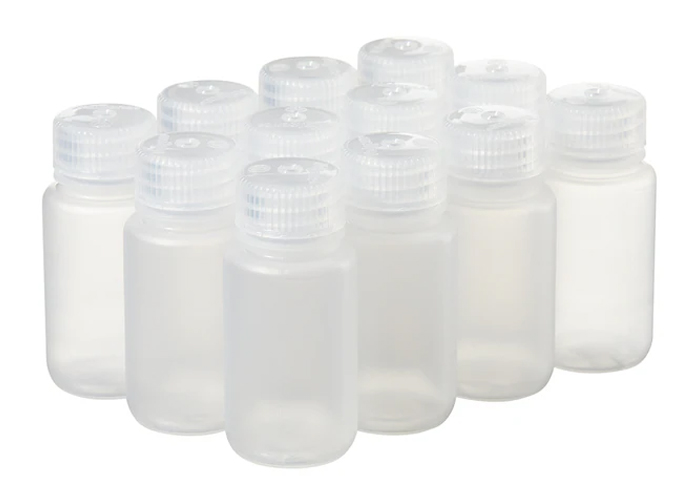
PPCO Random & PPHO – A polymer with moderate clarity, employed in the production of caps and closures. It is also utilized for crafting household items, buckets, toys, and storage containers. Polypropylene offers flexibility without significant limitations on color or special effects. Random copolymer boasts greater clarity compared to homopolymer and is better suited for creating translucent shades.
PPCO Block – Similar to PPCO but enhanced for increased impact resistance. An additive renders the polymer white, resulting in high opacity. This characteristic may limit the achievable transparency.
Polyethylene Terephthalate (PET) – Polyester materials exhibit robust mechanical strength along with excellent chemical resistance and barrier properties. PET is frequently chosen for the production of carbonated beverage containers. Moreover, polyester can be spun and employed in textile manufacturing for clothing. PET is highly transparent, making it an excellent choice for translucent packaging, although a subtle hint of “yellowing” may impact extremely light tints.

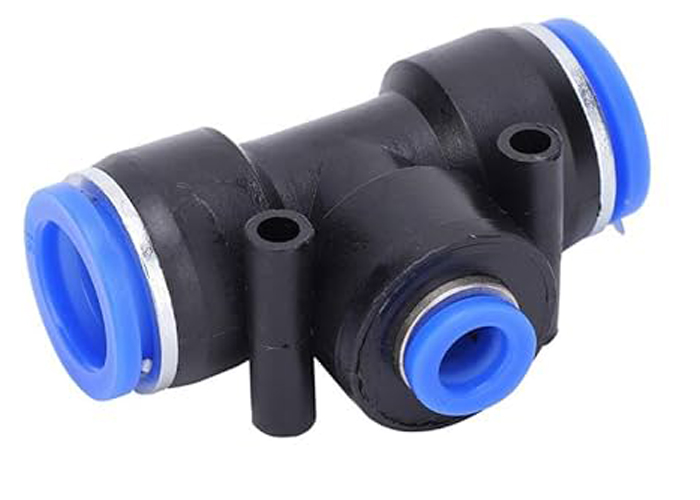
Polybutylene Terephthalate – A crystalline thermoplastic engineering polymer frequently employed as an insulating material within the electronics sector. This substance belongs to the polyester category, showcasing a remarkable equilibrium of attributes and processing qualities.
General Purpose Polystyrene – Exhibiting a glass-clear appearance but possessing minimal impact resistance, this material finds its primary application in CD cases. Its notable clarity renders it suitable for creating translucent hues, although an occasional violet tint may be discernible.
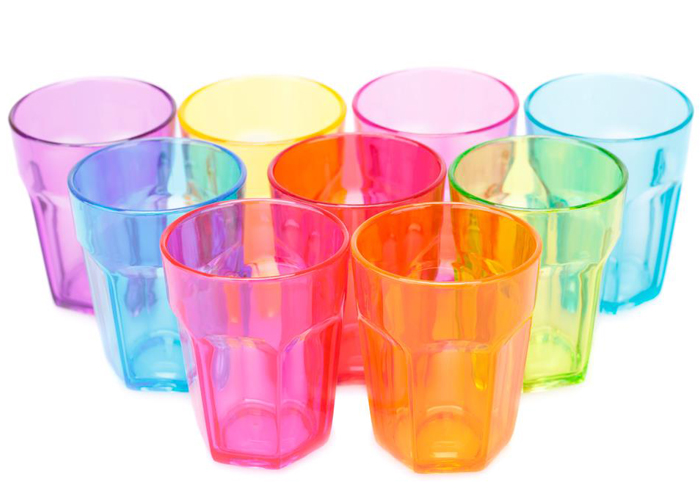
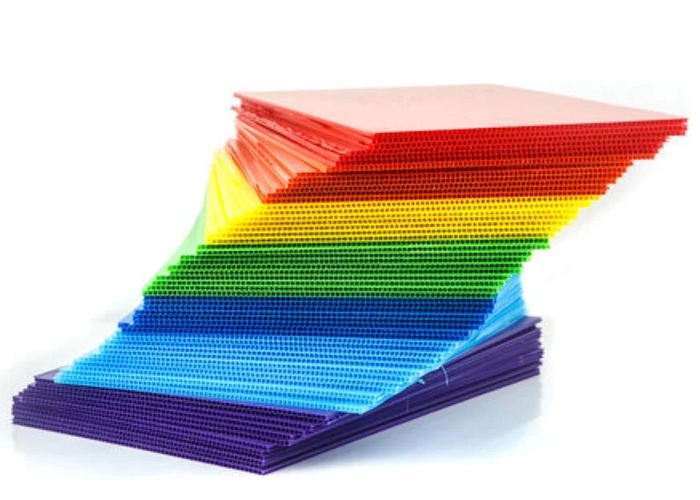
High Impact Polystyrene – Derived from GPPS by incorporating an impact-enhancing agent to boost its resistance to impacts. This added component results in the polymer becoming white, and different formulations provide varying degrees of opacity. Typically employed in the fabrication of game pieces, toys, and similar items. Its pronounced whiteness can pose challenges when aiming for translucent coloration. Specialized alternatives like K-Resin and Styrolux are accessible in the market to attain the same level of translucency as GPPS.
Acrylonitrile Butadiene Styrene (ABS) – A more robust iteration of High Impact Polystyrene (HIPS) employed in high-value components. ABS exhibits greater durability compared to HIPS-made components, although it encounters similar challenges when attempting to achieve translucent colorations. Just like HIPS, ABS offers specialized translucent variants. Owing to its durability, ABS is commonly used in crafting casings for power tools.

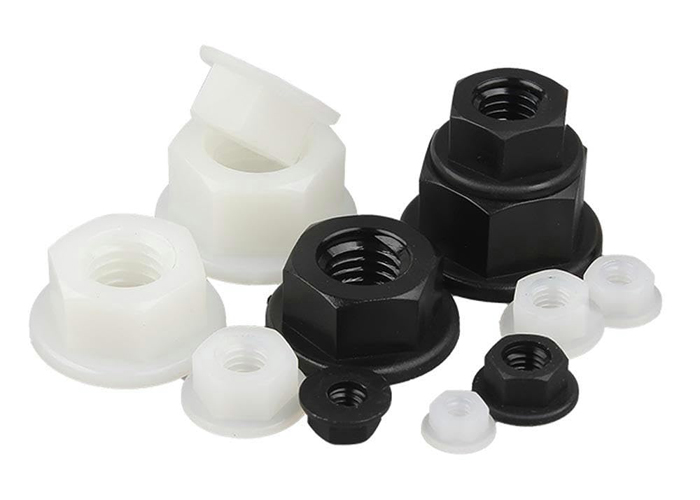
Polyamide (6, 66) – Nylon represents a versatile grade extensively employed in mechanical construction and maintenance. Its popularity stems from its excellent blend of mechanical strength, rigidity, mechanical damping characteristics, and effective electrical insulation capabilities. Consequently, nylon is a preferred material for manufacturing electrical enclosures. PA66 serves as a common alternative to metal across diverse applications, with its chemical and physical attributes closely resembling those of PA6. PA6 exhibits superior impact resistance and resistance to solvents, albeit with a heightened susceptibility to moisture absorption.
Styrene Acrylonitrile Copolymer – Possessing transparency and outstanding chemical and heat resistance, SAN also boasts good rigidity, tensile strength, and flexural strength. Thanks to its high-gloss finish, SAN is commonly chosen for cosmetic packaging purposes. However, achieving light tint colors with SAN can be challenging due to the violet dyestuffs inherent in the material, which are utilized to enhance its visual appearance during manufacturing.
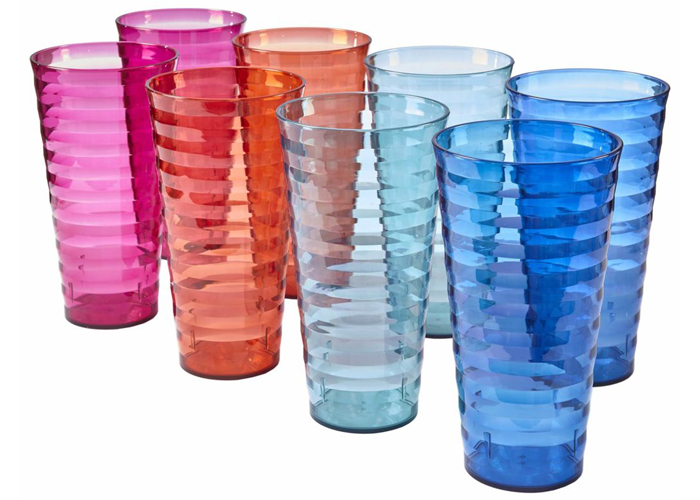
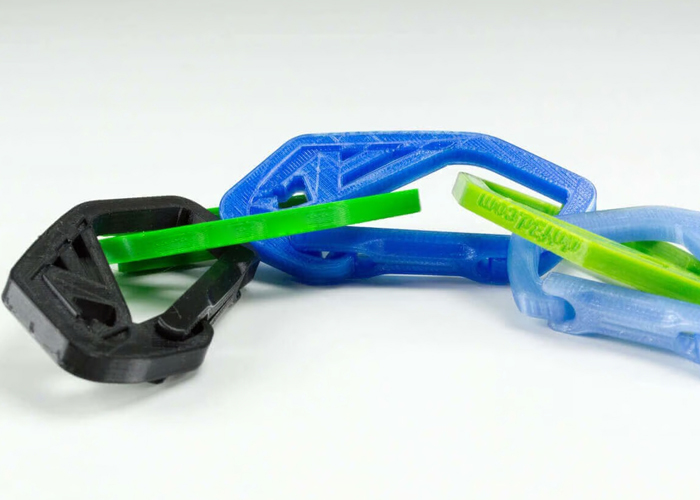
Polyethylene Terephthalate Glycol – PET with the incorporation of glycol. This glycol addition enhances flow properties but diminishes strength. PETG can be extruded to create bottles and can be formed into sheets for producing ‘blister’ style packaging.
Thermoplastic Elastomer (TPE) or Thermoplastic Polyurethane (TPU) – TPU finds diverse uses in applications such as automotive instrument panels, caster wheels, power tools, medical devices, as well as various extruded film, sheet, and profile applications. TPEs are employed across a wide range of applications in industries spanning automotive, medical, construction, electrical, appliances, packaging, and industrial sectors.
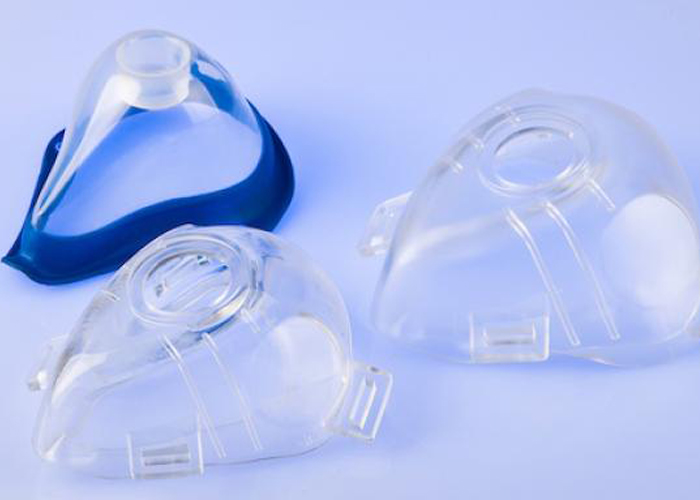
Frequently asked questions about our masterbatch
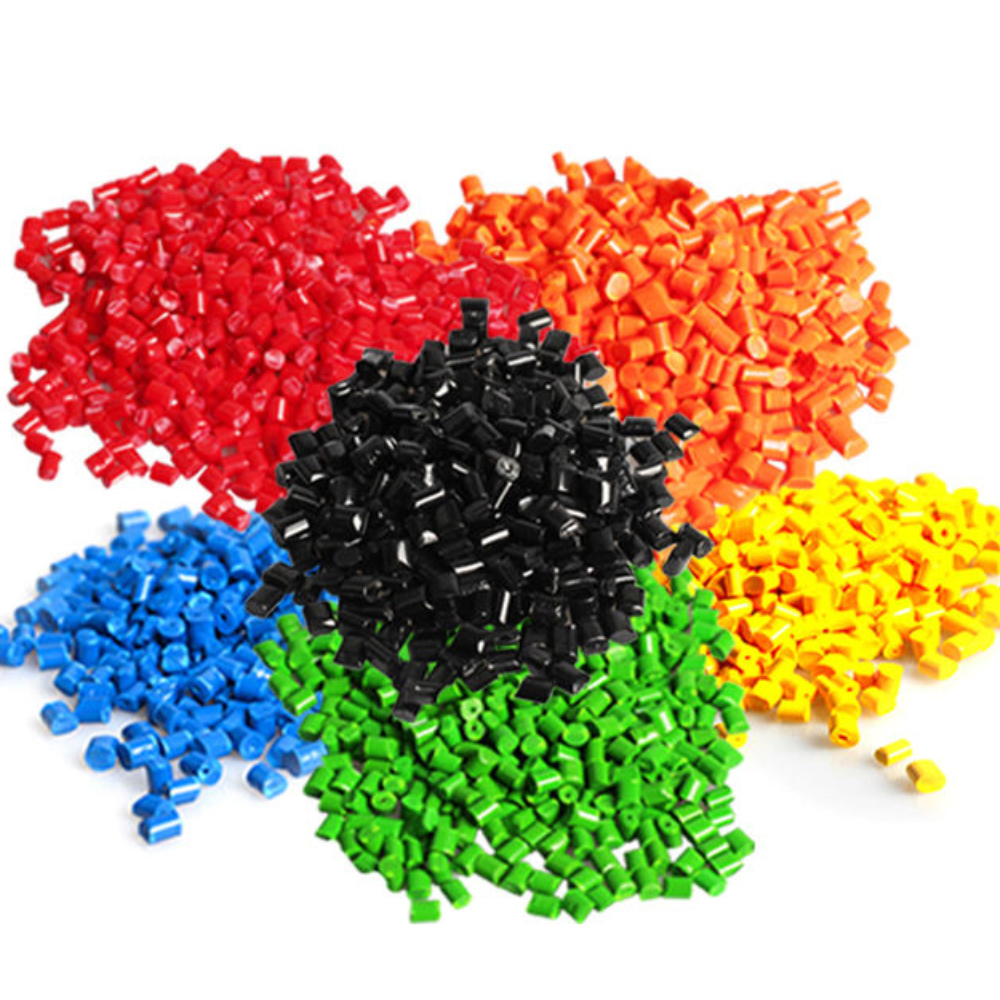
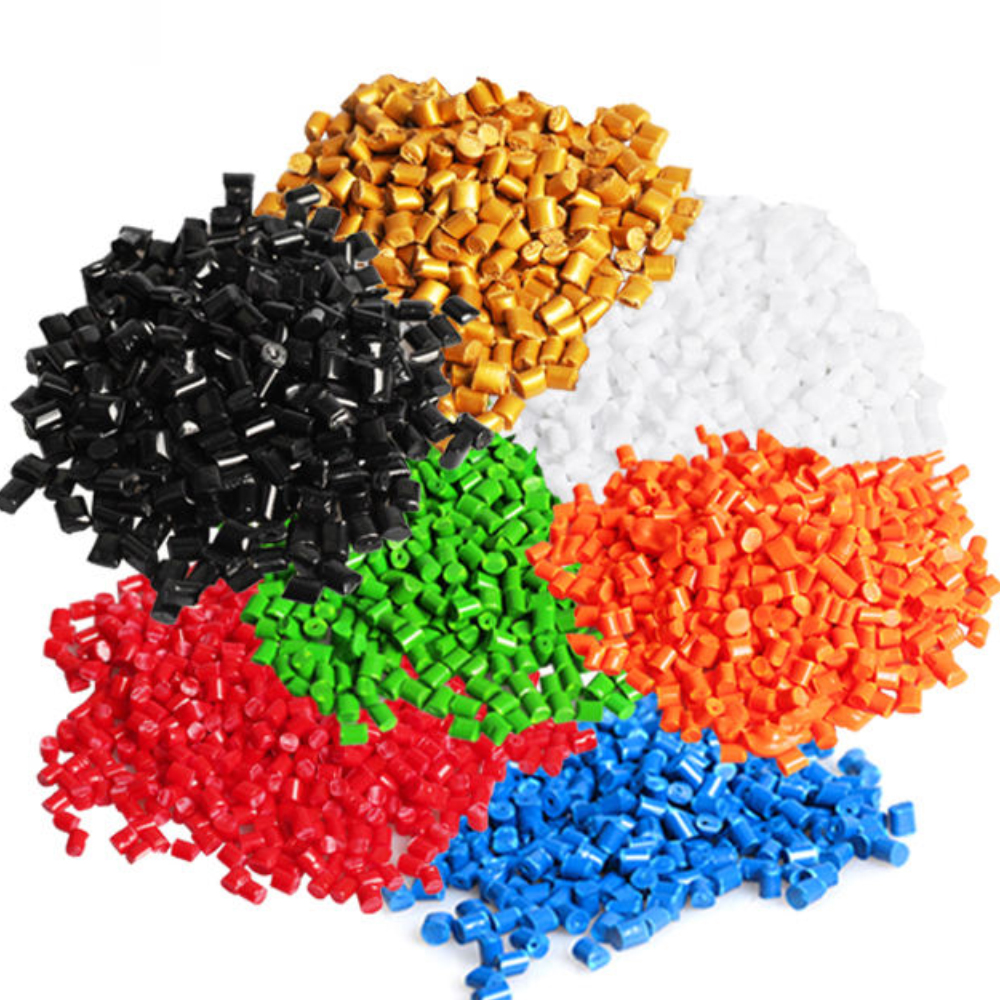
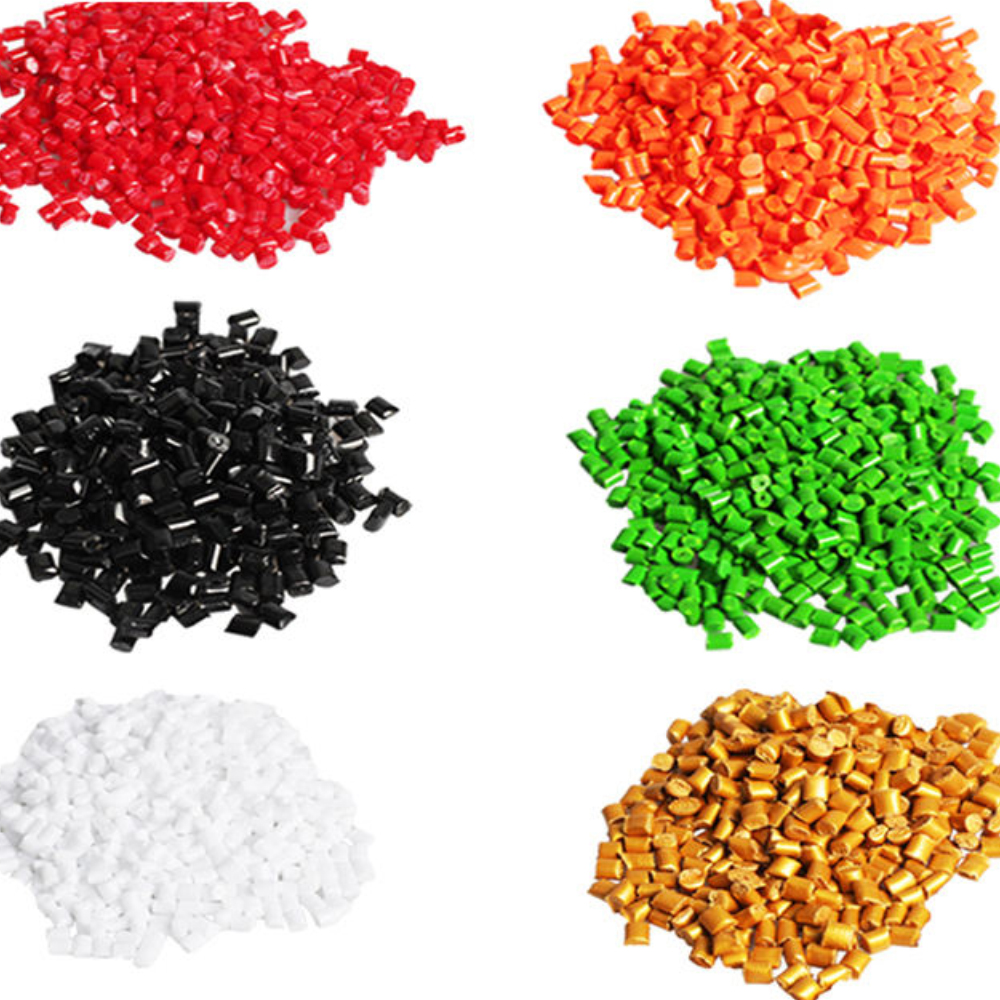
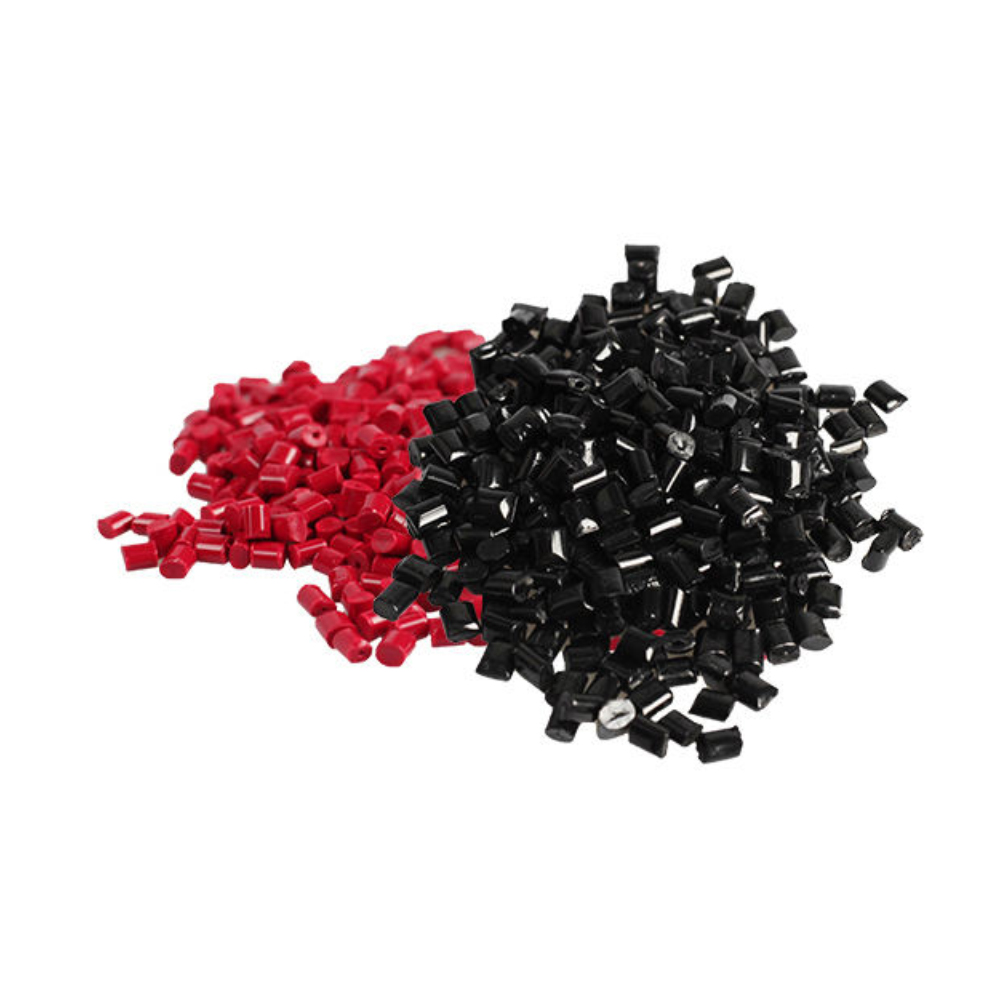
©2023. Masterbatch Manufacturer All Rights Reserved.
Our team will send back the best offer in 20 minutes.